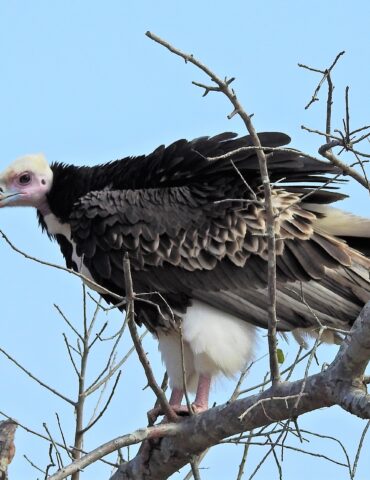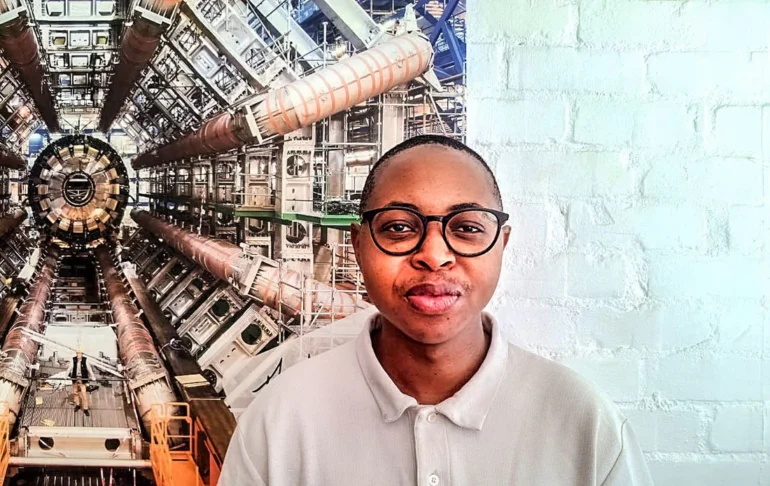Listeners:
Top listeners:
00:00
00:00
volume_up
chevron_left
-
 play_arrow
play_arrow
Radio Today Radio Today
-
 play_arrow
play_arrow
Morning News Mike Stroud
-
 play_arrow
play_arrow
Morning News Mike Stroud
Why we need to talk about older people and climate change in Africa
todayOctober 4, 2024 65
share
close
<h1 class=”theconversation-article-title”>Why we need to talk about older people and climate change in Africa</h1>
<div class=”theconversation-article-body”>
<span><a href=”https://theconversation.com/profiles/gary-haq-106494″>Gary Haq</a>, <em><a href=”https://theconversation.com/institutions/university-of-york-1344″>University of York</a></em></span>
<p>Africa is often viewed as a relatively <a href=”https://www.census.gov/library/stories/2022/04/why-study-aging-in-africa-region-with-worlds-youngest-population.html”>young continent</a>, with less than 7% of the population over 60. But this is set to change. Declining fertility rates and increasing life expectancy mean that by 2050, the number of people over 60 in Africa is projected to triple to <a href=”https://www.census.gov/content/dam/Census/library/publications/2020/demo/p95_20-1.pdf”>235 million</a> (about 9% of the African population).</p>
<p>This demographic shift is occurring when <a href=”https://www.ipcc.ch/report/ar6/wg2/chapter/chapter-9/”>global climate change</a> is intensifying, leading to more frequent and severe extreme weather events such as heatwaves, flooding and tropical cyclones.</p>
<p>By 2050, older adults in Africa are projected to face significantly higher <a href=”https://www.gavi.org/vaccineswork/heat-waves-can-be-deadly-older-adults-aging-global-population-and-rising”>heat exposure</a> due to rapid population growth and climate change, with an increase in extreme heat events. This will heighten health risks and put pressure on local services, especially in low-income areas with limited ability to cope with the strain.</p>
<p>As we age, it gets harder to <a href=”https://theconversation.com/extreme-heat-is-particularly-hard-on-older-adults-an-aging-population-and-climate-change-put-ever-more-people-at-risk-210049″>control body temperature</a>. Longtime health issues like heart and lung disease and diabetes make older people more likely to become dehydrated. </p>
<p>In Africa, many older people struggle to get the physical, mental, social and financial support they need to cope with the <a href=”https://www.frontiersin.org/journals/human-dynamics/articles/10.3389/fhumd.2024.1430667/full”>direct and indirect effects </a>of extreme weather.</p>
<p>Urgent strategies <a href=”https://www.sei.org/projects/climate-justice-in-an-ageing-world/#dialogue-series-“>are therefore needed</a> to protect older people from extreme weather such as heatwaves. These include <a href=”https://scholarlycommons.law.northwestern.edu/cgi/viewcontent.cgi?article=1333&context=nulr_online”>cooling infrastructure</a> (air conditioning) and early warning systems that tell older people when it is getting dangerously hot. Climate change adaptation plans must be integrated with policies on ageing to protect older people.</p>
<p>I research <a href=”https://link.springer.com/referenceworkentry/10.1007/978-3-319-69892-2_1112-1″>climate gerontology</a> – the intersection between <a href=”https://www.sei.org/projects/climate-justice-in-an-ageing-world/”>ageing and climate change</a>. As part of my research I am undertaking a series of <a href=”https://www.sei.org/projects/climate-justice-in-an-ageing-world/#dialogue-series-“>Global Ageing and Climate Change Regional Dialogues</a> in collaboration with <a href=”https://www.helpage.org/”>HelpAge International</a>. Here are the key issues we found in Africa.</p>
<h2>Climate change is harsh on older people</h2>
<p><a href=”https://theconversation.com/why-older-people-are-some-of-those-worst-affected-by-climate-change-210847″>Older people</a> vary in health and mobility. Some older individuals remain active and healthy, allowing them to cope better with the disruptions caused by extreme weather. Other, less active older adults tend to be vulnerable to climate-related threats because of weaker physical health, reduced mobility and higher risk of existing disease.</p>
<p>In Africa, older people are <a href=”https://www.youtube.com/watch?v=8N5rL48OZMo”>at greater risk</a> because <a href=”https://wmo.int/media/news/africa-faces-disproportionate-burden-from-climate-change-and-adaptation-costs”>the continent has</a> limited basic infrastructure. This is especially the case in rural areas, where access to healthcare, clean water and emergency services is often poor. Poverty, living alone, and depending on small-scale farming make them even more susceptible to extreme weather.</p>
<p>The impact of climate change <a href=”https://wmo.int/media/news/africa-faces-disproportionate-burden-from-climate-change-and-adaptation-costs”>disproportionately affects</a> the continent, resulting in severe <a href=”https://www.euronews.com/green/2023/12/15/floods-have-washed-away-entire-villages-kenyas-rains-made-twice-as-intense-by-climate-chan”>floods</a>, <a href=”https://earthobservatory.nasa.gov/images/152711/severe-drought-in-southern-africa”>droughts</a> and unprecedented heatwaves. </p>
<p>In <a href=”https://www.carbonbrief.org/analysis-africas-extreme-weather-have-killed-at-least-15000-people-in-2023/#:%7E:text=The%20investigation%20shows%20that%20at,Congo%20and%20Rwanda%20in%20May.”>2023 alone</a>, about 15,700 people were killed in extreme weather disasters in Africa, and a further 34 million people affected. Storm Daniel caused widespread devastation in <a href=”https://dtm.iom.int/reports/libya-impact-storm-daniel-update-displacement-and-needs-november-2023″>Libya</a>, displacing 2.4 million people. <a href=”https://www.euronews.com/green/2023/12/15/floods-have-washed-away-entire-villages-kenyas-rains-made-twice-as-intense-by-climate-chan”>Kenya</a>, Somalia and Ethiopia experienced intense rainfall and flooding. Northern Africa faced record-breaking heat, with temperatures reaching 49.0°C in <a href=”https://www.meteo.tn/index.php/en/actualites/Bulletin-Climatologique-Juillet-2023?page=4″>Tunisia</a> and 50.4°C in Algeria. Severe droughts hit Morocco, Algeria and Zambia, affecting millions.</p>
<p>Prolonged <a href=”https://theconversation.com/drought-is-devastating-southern-africas-crops-why-its-happening-and-what-can-be-learned-237148″>droughts and crop failures</a> make food shortages worse and mean that older people are unable to access healthy, nutritious food.</p>
<p><a href=”https://helpageusa.org/kenya-floods-threatening-older-people-and-other-at-risk-communities/”>Floods</a> contribute to displacement and difficulties in accessing healthcare, resulting in stress and anxiety.</p>
<p>Older people are also affected by the <a href=”https://www.helpage.org/news/digital-inclusion-of-older-women/”>digital divide</a>. Not having as much access to digital tools like smartphones means they cannot always get the information they need. They may not be able to see climate change education programmes, or get early warnings of extreme weather.</p>
<h2>Solutions</h2>
<p><strong>Traditional knowledge:</strong> This is the understanding and practices that older people in Africa have gained over generations about their local environment. It includes knowing about climate patterns, resource use and disaster preparedness. Recognising this valuable knowledge can help communities adapt to climate change and strengthen local community resilience.</p>
<p><strong>Regular assessments:</strong> Local authorities and community organisations must monitor how older people are coping with climate impacts. This will lead to more effective adaptation strategies that make use of their insights.</p>
<p><strong>Healthy ageing:</strong> Older people need support to take care of their bodies, minds and social lives so that they can stay active and remain independent. <a href=”https://www.who.int/initiatives/decade-of-healthy-ageing#:%7E:text=The%20United%20Nations%20Decade%20of,communities%20in%20which%20they%20live.”>Healthy ageing</a> helps prevent illness and disabilities, and allows older adults to connect with communities and cope with extreme weather.</p>
<p><strong>One-stop shops for older people:</strong> These should be set up by community-based organisations, charities and government agencies to provide services such as financial assistance, healthcare and nutrition support specifically tailored for older people. They could also train older people to adapt to climate change.</p>
<p><strong>Involve older people in climate adaptation:</strong> Through their local organisations, older people should be involved in disaster risk reduction plans.</p>
<p>Older people have already played vital roles in climate adaptation efforts across Africa. In Kenya, their mobilisation for <a href=”https://www.africanews.com/2023/04/28/kenyans-plant-their-age-in-trees-to-combat-deforestation/”>national tree planting initiatives</a> shows what a great contribution older people can make to the environment. A group of different generations also works together in Kenya on <a href=”https://www.globalgiving.org/projects/radios-for-the-aged-project/”>Agriculture for the Aged</a> – planting climate-resilient crops to cope with unpredictable weather patterns. </p>
<h2>Policy changes needed</h2>
<p>For these solutions to become a reality, policies, and budgets are needed. </p>
<p>First, policymakers should consult older people and their representatives when they draw up climate resilience strategies. Region-specific strategies are best. For example, when setting up community-based early warning systems for extreme weather events, local authorities could work with non-governmental organisations to create a system that provides timely alerts aimed at older people.</p>
<p>Second, <a href=”https://www.masteringpublicspace.org/age-friendly-public-spaces-in-african-cities-challenges-and-opportunities/”>age-friendly infrastructure</a>, such as accessible healthcare facilities and housing that can withstand extreme weather, must be set up. </p>
<p>Third, stronger laws and political commitment will result in stronger policies for older people. The lack of political will often results in insufficient attention and resources being allocated to <a href=”https://www.ohchr.org/en/climate-change/impact-climate-change-rights-older-persons”>the needs of older people in climate action</a>. Without strong commitment from policymakers, older populations are frequently overlooked. This limits their ability to adapt effectively. </p>
<p>Fourth, social protection systems such as cash transfer programmes must be improved to give financial help to vulnerable older people. Programmes that provide direct support and jobs in projects that protect against climate impacts are also a good idea.</p>
<p>To make this happen, governments and institutions must start collecting more data on how older people are affected by climate change. By developing inclusive policies, we can promote healthy ageing while empowering older adults to play an active role in building climate resilience.<!– Below is The Conversation’s page counter tag. Please DO NOT REMOVE. –><img src=”https://counter.theconversation.com/content/239107/count.gif?distributor=republish-lightbox-basic” alt=”The Conversation” width=”1″ height=”1″ style=”border: none !important; box-shadow: none !important; margin: 0 !important; max-height: 1px !important; max-width: 1px !important; min-height: 1px !important; min-width: 1px !important; opacity: 0 !important; outline: none !important; padding: 0 !important” referrerpolicy=”no-referrer-when-downgrade” /><!– End of code. If you don’t see any code above, please get new code from the Advanced tab after you click the republish button. The page counter does not collect any personal data. More info: https://theconversation.com/republishing-guidelines –></p>
<p><span><a href=”https://theconversation.com/profiles/gary-haq-106494″>Gary Haq</a>, Senior Research Fellow at the Stockholm Environment Institute, <em><a href=”https://theconversation.com/institutions/university-of-york-1344″>University of York</a></em></span></p>
<p>This article is republished from <a href=”https://theconversation.com”>The Conversation</a> under a Creative Commons license. Read the <a href=”https://theconversation.com/why-we-need-to-talk-about-older-people-and-climate-change-in-africa-239107″>original article</a>.</p>
</div>
Written by: Mike Stroud
Rate it
Similar posts
Recent Comments
No comments to show.Featured post

Latest posts
Current show

Pages Unbound with Glenda Slade
Professional Audio Books reader Glenda Slade reads full books from Cover to Cover on Pages Unbound.
closeUpcoming shows

Living Our Best Years
10:30 am - 11:00 am

Reading Matters
11:00 am - 12:00 pm

BBC World Midday News
12:00 pm - 1:00 pm

After Lunch with Radio Today
1:00 pm - 3:00 pm

Afternoons on Radio Today
3:00 pm - 6:00 pm
Chart











